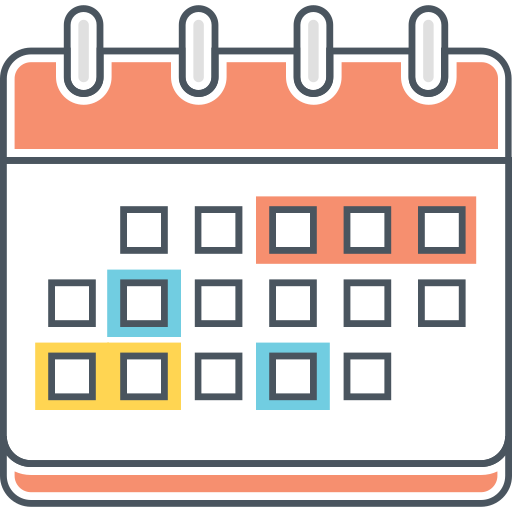It seems like almost every day there is a new popular “fad” diet that makes its way to popular culture. These fad diets try to convince you that they work and that they are effective in helping people lose weight “instantly.” They also try to convince people that through their proven formula, the fad diet is the only way that you can lose so much weight in a short amount of time, which is what we all want anyway.
It takes real discernment to understand what kind of diet will work for you and which one is simply a fad, or one that is trying to sell you a health product without any real benefits for your body. To help you determine the difference, read below about the characteristics of fad and healthy diets.
characteristics of fad diets
· No exercise: Basic nutritional science says that to lose weight you need to burn more calories than you consume. This means that you need to exercise to lose some of the calories that you consume. However, fad diets promise that their formula will help you lose weight without the need to exercise. This is a red flag because exercise is needed by the body even if you aren’t trying to lose weight.
· Eliminates food groups: Fad diets tend to restrict certain food groups such as carbohydrates. This is common among short-term solutions disguised as long-term weight loss formulas popularized by fad diets. Cutting off whole food groups is bad for you since it can lead to nutritional deficiencies.
· Promote use of pills: These pills are developed to make money off of those who are fooled by the promise of fad diets. Most of them are not FDA-approved nor do they have any scientific evidence that supports them. A good example of this is the pills that block your body’s absorption of fat or carbohydrates. Oftentimes these super pills are expensive and are just a waste of money.
· Rapid weight loss: Diets that promise drastic weight loss, such as 10 pounds a week, are bad for you if it even works. Experts agree that the healthy weight loss ratio is up to 2 pounds per week at the most. Low-calorie diets that promise weight loss of more than this per week are unadvisable since your body can be severely depleted of vital nutrients and minerals, so it’s no surprise that these can make you feel weak.
· Lack of scientific evidence: Before you embark on any diet, it’s recommended to conduct research online to see if it has been studied medically and scientifically. Fad diets don’t have any backup yet you will find lots of enthusiastic testimonials from people for whom it supposedly works. The best way to be sure is to follow advice from government organizations, registered healthcare providers, health experts, or dieticians.
Characteristics of a healthy diet
If you want to lose weight the healthy way and sustainably, there are specific guidelines that have been agreed upon in the medical community. These rules are consistent and can work well for every body type.
· Avoid processed food: Most of the salt in our diet today comes from eating processed and canned food. Too much salt or sodium in the body can lead to cardiovascular disorders. Salt is often used to add flavor, as a preservative, or as an additive to processed foods to change their texture.
· Lots of fruits and vegetables: When it comes to nutrients with a low-calorie content, nothing beats a healthy diet that is rich in fruits and vegetables. As a general rule of thumb, the more colors and texture you consume each day, the more nutrients you are consuming. Each kind of fruit or vegetable has its unique combination of minerals, nutrients, and vitamins that help your body function more efficiently.
· High in nutrient-rich protein sources: Meat is the most common source of protein, but there are also other alternatives if you choose not to consume meat. Lean cuts of beef and pork as well as poultry are excellent sources of protein. Protein is necessary for the development and growth of muscles as well as healthy body function. The recommended intake for adults is 5 to 6 ounces of protein per day. Good alternative sources of protein include fatty fish such as salmon; beans, legumes, and dairy.
· Healthy fat intake: Certain kinds of fat are good for you, even required by the body for optimum functioning. Choose fat from plant-based sources such as seeds and nuts. Avoid meat products that are high in fat such as sausages, burgers, and bacon. Minimize or avoid if possible the consumption of trans fat which is bad for you – this is often found in processed baked goods but the best way to be sure is to check the nutrition labels first.
· Rich in whole grains: A healthy diet is also made up of good whole grains. This includes quinoa, oats, black rice, barley, whole grain bread, and wheat berries. This food group is an excellent source of vitamins and dietary fiber which is necessary in keeping your digestive system healthy while keeping your heart strong and reducing your risk for cardiovascular disease. Ideally, adults should be consuming between 6 to 8 ounces of whole grains per day.
. Regular exercise: Working out regularly throughout the week brings about a myriad of health benefits aside from helping to speed up your metabolism and burn fat more effectively. In addition, if weight loss is important to you, regular exercise can help make sure that you keep it off while helping you to keep the weight off which becomes harder especially when you age.
 Everywhere
Everywhere Questions
Questions Questions
Questions Events
Events Communities
Communities Videos
Videos Pages
Pages Wiki / FAQs
Wiki / FAQs Listings
Listings Members
Members

